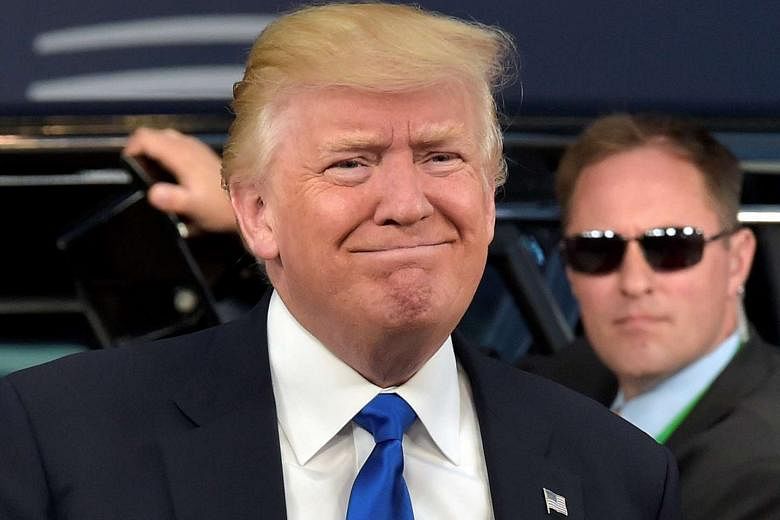WASHINGTON (REUTERS) - In a stinging rebuke to President Donald Trump, a US appeals court refused on Thursday (May 25) to reinstate his temporary travel ban on people from six Muslim-majority nations, setting the stage for a possible legal showdown in the Supreme Court.
The decision, written by Chief Judge Roger Gregory, described Trump's executive order in forceful terms, saying it uses "vague words of national security, but in context drips with religious intolerance, animus, and discrimination."
The White House declined comment and referred questions to the US Justice Department, which did not immediately respond to a request for comment. The administration had said the temporary travel ban would prevent terrorist attacks.
In its 10-3 ruling, the US 4th Circuit Court of Appeals said challengers of the ban, including refugee groups and individuals, were likely to succeed on their claim that the order violates the US Constitution's bar against favouring one religion over another.
The case could be appealed to the US Supreme Court, which could make the final decision. The government could also file an emergency application seeking to put the order into effect while the litigation continues.
Gregory cited statements by Trump during the 2016 presidential election calling for a "Muslim ban."
The judge wrote that a reasonable observer would likely conclude the order's "primary purpose is to exclude persons from the United States on the basis of their religious beliefs."
The government had argued that the court should not take into account Trump's comments on the campaign trail since they occurred before he took office on Jan 20. But the appeals court rejected that view, saying they provide a window into the motivations for Trump's action in government.
The appeals court questioned a government argument that the President has wide authority to halt the entry of people to the United States.
"Congress granted the President broad power to deny entry to aliens, but that power is not absolute. It cannot go unchecked when, as here, the President wields it through an executive edict that stands to cause irreparable harm to individuals across this nation," the majority opinion said.
The Virginia-based appeals court was reviewing a March ruling by Maryland-based federal judge Theodore Chuang that blocked part of Trump's March 6 executive order barring people from Iran, Libya, Somalia, Sudan, Syria and Yemen for 90 days while the government put in place stricter visa screening.
A similar ruling against Trump's policy from a Hawaii-based federal judge is still in place. That ruling went farther than Chuang's order, blocking a section of the travel ban that also suspended refugee admissions for four months. The San Francisco-based 9th US Circuit Court of Appeals is reviewing that decision.
'WOLF IN SHEEP'S CLOTHING'
Trump has lashed out at the judges and courts that have ruled against him, saying the 9th Circuit has a "terrible" record and calling its rulings on his policies "ridiculous."
The March ban was Trump's second effort to implement travel restrictions through an executive order. The first, issued on Jan 27, led to chaos and protests at airports before it was blocked by courts.
The second order was intended to overcome the legal issues posed by the original ban, but it was blocked by judges before it could go into effect on March 16.
In a concurring opinion on Thursday, Judge Stephanie Thacker wrote that the administration did nothing to distance itself from the first order, describing the revised ban as "the proverbial wolf in sheep's clothing."
Chief Judge Gregory, who wrote the majority opinion, was first installed in a recess appointment by Democratic President Bill Clinton and then nominated to the same post by Republican former president George W. Bush.
Nine other judges appointed by Democrats agreed to block the travel ban, while three Republican-appointed judges dissented.
The dissenting judges said the executive order was constitutional and a valid exercise of presidential authority, and that Trump's campaign statements should not have come into play. The order itself "contains no reference to religion whatsoever," Judge Paul Niemeyer wrote.
Two other 4th Circuit judges, both appointed by Republicans, were recused from the case.

